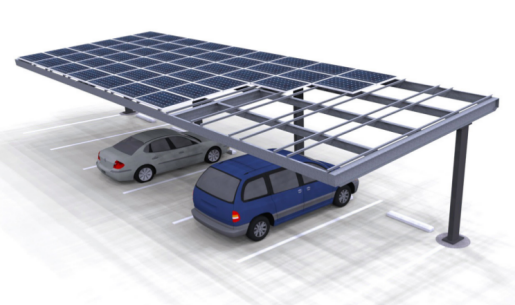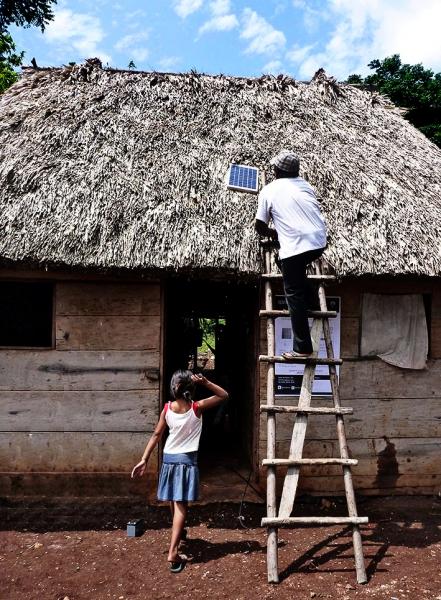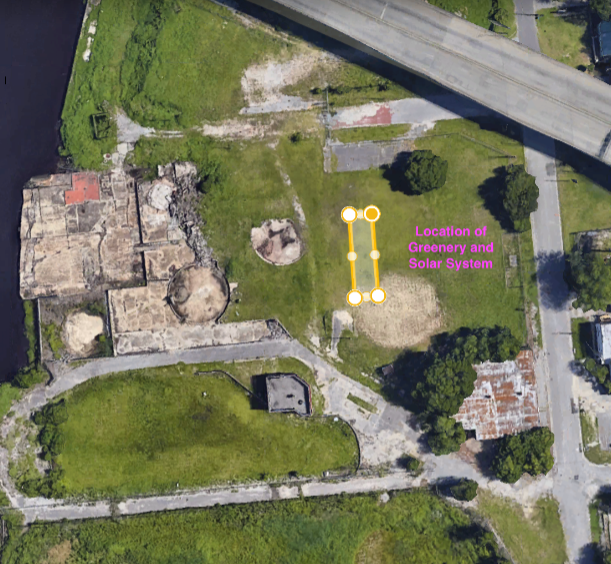Certificate in Renewable Energy Management (CREM) Past Projects; Register Now for Next Training July 9
Check out a few Certificate in Renewable Energy Management (CREM) training projects from 2018 and earlier this year, and join us for the last CREM session of 2019 from July 9 through August 16!
The CREM training program is for those interested in learning about renewable energy project management and what it takes to make a renewable energy project feasible, profitable and marketable. Throughout the six-week course, participants learn about solar technology, policy, financing and project management, and develop a research project on a topic they’re passionate about.
Everyone, regardless of experience or background, is welcome to attend CREM. There are no prerequisites, and you do not need to have a background in renewable energy to be successful in the class. For the final project, creativity and exploring something you’re interested in is encouraged! The final project can be on any topic related to renewable energy such as wind, solar, energy efficiency, biomass and doesn’t need to be technical in nature. Previous participants have done interviews with local politicians to perform a solar feasibility study, developed a business plan to start their own company, and presented some of the projects featured below.

Solar EV Charging Project
By Max Burden and Ken Clifton
March 2018
The solar EV charging project proposed implementing a solar-powered electric vehicle (EV) charging station that offsets its consumption of grid power with solar production. The group proposed using inverter technology that implements a “solar charging boost” to be used to provide faster charging than is available at the industry standard level 2 charging stations. In addition to providing faster charging, the goal was to implement a charging station model that can return an IRR of close to 10 percent in order to provide a self-sustaining business model for charging electric vehicles.

Esmeralda Project
Topic: Off-grid Solar PV and Battery Storage
By Francisco Hernandez & Monse Arenas
March 2018
The Esmeralda project aimed to alleviate and empower one of the most challenged and underprivileged communities in Yucatan – a settlement called Esmeralda, with a population of about 20 people. The limited number of working adults experience unstable income resulting in precarious living conditions. The project proposed to install three PV standalone systems with battery storage that would provide power for three households, a classroom and an electric pump. The aim was to bring electricity to the community that would increase people’s safety and improve their health – as it would avoid the use of candles and oil lamps, and also extend the community’s productivity hours, so they can be invested in education, work and leisure.

Solar Power Greenery in Wilmington, NC
Topic: Solar PV, Hydroponics, and Education
By Gunar Swartzlander
March 2019
The solar power greenery by Freight Farms in Wilmington, North Carolina project proposed using hydroponic gardening (a more modern approach to agriculture that helps eliminate massive use of pesticides, herbicides, land use, and water) and solar arrays to grow food to then donate to local food banks, supplying fresh produce to the homeless and those in need. The project could also be used as an education tool for local public schools as well as an opportunity for classes in sustainability and hydroponics at Cape Fear Community College. The idea of the project was to use an entire system that is self-sustainable – which could be used as a prototype and case study for future endeavors of feeding the hungry and needy in all parts of the world.

NC Brightfields
Topic: Site Remediation and Solar PV
By Shannon Arata
March 2019
This project concept, NC Brightfields, was a B Corporation that develops solar farms on North Carolina’s brownfields properties, which are properties that are underused because of suspected environmental contamination. North Carolina’s Department of Environmental Quality, Division of Waste Management incentivizes qualified developers like NC Brightfields to redevelop brownfields properties through its brownfields program and brownfields agreements. This project identified available funding sources for brightfields projects, provided an estimated timeline, and assessed the solar potential of four parcels with legacy contamination from a now- shuttered aluminum smelting operation in Badin, North Carolina.

Clayton Golf Course Academy Range
Topic: Energy Efficiency
By Raymundo Villaflores and Alejandro Anez
2019
The Clayton Golf Course Academy Range project worked with the Golf Academy in Auburn Knightdale Road, Raleigh, NC, to come up with a way to make their facility more energy efficient. Golf Academy was overpaying on their utility bills, so the project’s objective was to lower the peak load and energy during peak hours by using solar panels over the players deck, a hybrid inverter to utilize the Energy Storage System ESS, and replacing the flood lights with LED. It was estimated the facility would have a 15-year remaining system savings of approximately $153,900.
Did any of these projects pique your interest? Learn more about CREM here, and register for the next CREM session here. Contact Megan Berry at mdcain@ncsu.edu or 919-513-4790 for any questions.